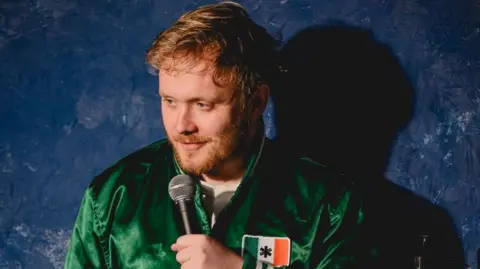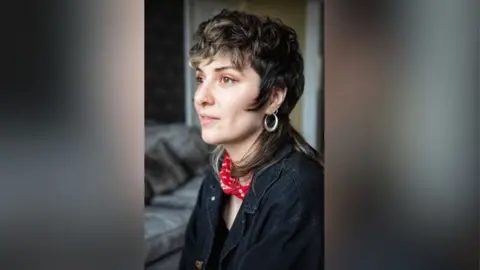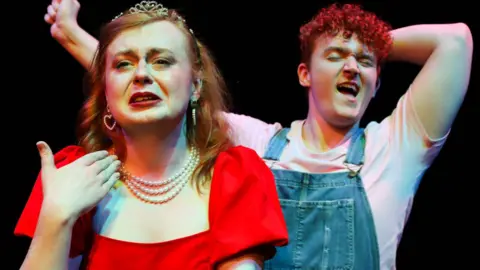BBC News NI
 Esteve Tomas
Esteve TomasFor three weeks in August, Scotland’s capital becomes a hub of creativity, arts and culture as thousands of performers descend for the Edinburgh Festival Fringe.
Artists from Northern Ireland are always a regular fixture and this year will be no different.
But some say while the Fringe brings opportunities it also has its challenges.
This year’s programme includes 3,352 shows across 265 venues.
Amongst those performing is comedian Reece Kidd, who described the Fringe as “a bit mental”.
Reece will be performing five shows a day during the Fringe as it is “the only way financially” he can afford to perform.
“I’m a 30 year-old man who stays in a university dorm because it’s the only place that’s semi-affordable,” he said.
“I get kidney stones every year, it’s tradition. I ruin myself.”
Reece said the financial challenges of accommodation in Edinburgh during the Fringe presented obstacles for working-class acts.
“The grant schemes aren’t sufficient,” he said.
“I would love if everyone had to submit their bank statements.”
 Taylor Gotch
Taylor GotchKaris Kelly, the writer of the play Consumed, a dark-comedy examining trans-generational trauma among four generations of women from a family in Bangor, said the Fringe was an opportunity for acts from Northern Ireland to meet potential collaborators.
“Another really big opportunity is that, increasingly, we’ve seen shows that were staged at the Fringe become TV productions,” Karis said.
“The Fringe gives you the opportunity to actually have a thriving career.”
But they believe a lack of funding holds back acts from Northern Ireland.
“I think working-class artists in the north have a harder time than any other artists,” Karis said.
They added that more priority needed to be given to the arts scene in Northern Ireland.
“Audiences in Northern Ireland deserve to see authentic representations of their stories,” they said.
“So often we see our stories told by people who aren’t Northern Irish.
“I don’t know how we expect to have a thriving theatre ecology when we ship everyone out.”
 Amanda Doherty
Amanda DohertyRose Coogan, whose play Rose + Bud features at this year’s Fringe, said it was a great opportunity to “get eyes” on her work.
“It’s no secret that there’s a certain level of validity that doing the Fringe can give you.”
She described her play as “a queer coming of age story about learning who you are and forgiving who you were”.
She said it was more important than ever that “queer people make art”.
“Hopefully people, who don’t know any trans people, walk away from the show knowing we are looking for the same things in life as them,” she said.
Rose said she felt many artists left Northern Ireland because the local art scene “doesn’t know what to do with them”.
“Belfast needs to treat itself just as important as Edinburgh or London. Sometimes working in theatre here can feel like screaming at a brick wall,” she said.
“We need to strive to get our things put on here.”
She added that people from working-class communities struggled to afford the costs associated with performing at the Fringe.
“This would have been undoable if I hadn’t got the experiences and opportunities I’d been given,” she said.
“We don’t give working class artists here enough room to grow. Art needs to be more accessible.”




